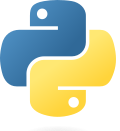Probabilistic logic programming is a programming paradigm that combines logic programming with probabilities. Most approaches to probabilistic logic programming...
11 KB (1,199 words) - 07:46, 28 June 2024
Probabilistic programming (PP) is a programming paradigm in which probabilistic models are specified and inference for these models is performed automatically...
19 KB (1,452 words) - 01:21, 12 June 2024
Probabilistic logic (also probability logic and probabilistic reasoning) involves the use of probability and logic to deal with uncertain situations. Probabilistic...
15 KB (1,771 words) - 13:39, 28 February 2024
Inductive logic programming (ILP) is a subfield of symbolic artificial intelligence which uses logic programming as a uniform representation for examples...
37 KB (4,184 words) - 10:23, 21 August 2024
ProbLog (category Logic programming languages)
probabilistic logic programming language that extends Prolog with probabilities. It minimally extends Prolog by adding the notion of a probabilistic fact...
10 KB (1,000 words) - 08:11, 28 June 2024
Logic programming is a programming, database and knowledge representation paradigm based on formal logic. A logic program is a set of sentences in logical...
84 KB (10,745 words) - 03:58, 13 September 2024
Statistical relational learning (redirect from Probabilistic relational model)
first-order logic to describe relational properties of a domain in a general manner (universal quantification) and draw upon probabilistic graphical models...
7 KB (708 words) - 16:40, 3 February 2024
(2014). Compiling probabilistic logic programs into sentential decision diagrams. In Proceedings Workshop on Probabilistic Logic Programming (PLP) (pp. 1-10)...
3 KB (361 words) - 14:02, 31 August 2024
Retrieved 19 May 2016. De Raedt, Luc; Kimmig, Angelika (2015). "Probabilistic (logic) programming concepts". Machine Learning. 100 (1): 5–47. doi:10.1007/s10994-015-5494-z...
161 KB (13,338 words) - 16:59, 17 September 2024
A probabilistic logic network (PLN) is a conceptual, mathematical and computational approach to uncertain inference. It was inspired by logic programming...
5 KB (543 words) - 12:40, 12 July 2024
inductive programming, such as functional logic programming, constraint programming, probabilistic programming, abductive logic programming, modal logic, action...
24 KB (2,546 words) - 23:16, 1 February 2024
inference engine to automate probabilistic reasoning—a kind of Prolog for probability instead of logic. Bayesian programming is a formal and concrete implementation...
42 KB (6,891 words) - 18:26, 19 February 2024
computer programming: Computer programming – process that leads from an original formulation of a computing problem to executable computer programs. Programming...
15 KB (991 words) - 19:23, 4 March 2024
Probabilistic Soft Logic (PSL) is a statistical relational learning (SRL) framework for modeling probabilistic and relational domains. It is applicable...
16 KB (2,119 words) - 15:24, 31 July 2021
Abductive reasoning (redirect from Probabilistic abduction)
most likely hypothesis that should be adopted. Subjective logic generalises probabilistic logic by including degrees of epistemic uncertainty in the input...
76 KB (9,958 words) - 03:50, 13 September 2024
Randomized algorithm (redirect from Probabilistic algorithm)
either by signaling a failure or failing to terminate. In some cases, probabilistic algorithms are the only practical means of solving a problem. In common...
32 KB (4,173 words) - 21:10, 30 March 2024
Logic is the study of correct reasoning. It includes both formal and informal logic. Formal logic is the study of deductively valid inferences or logical...
145 KB (16,445 words) - 08:31, 12 September 2024
There are also examples of probabilistic reasoners, including non-axiomatic reasoning systems, and probabilistic logic networks. Notable semantic reasoners...
6 KB (573 words) - 20:34, 9 August 2024
set programming to the problem of product configuration. In 1999, the term "answer set programming" appeared for the first time in a book The Logic Programming...
26 KB (2,839 words) - 21:26, 8 May 2024
The LogicBlox system is a commercial, declarative, incremental logic programming language and deductive database inspired by Datalog. The LogiQL programming...
9 KB (635 words) - 18:06, 8 June 2024
Abductive logic programming (ALP) is a high-level knowledge-representation framework that can be used to solve problems declaratively, based on abductive...
18 KB (2,524 words) - 22:59, 1 February 2024
expressible in this language, more powerful language based on logic programming and fixpoint logic such as Datalog were studied. The theory also explores foundations...
3 KB (372 words) - 14:58, 30 January 2024
and probabilistic knowledge. She has been awarded the prize for the best application paper at the International Conference on Logic Programming (ICLP)...
4 KB (316 words) - 06:36, 6 May 2024
autoepistemic logic can express knowledge and lack of knowledge about facts. The stable model semantics, which is used to give a semantics to logic programming with...
7 KB (1,012 words) - 06:39, 2 July 2024
Reversible computing (redirect from Reversible logic)
variety of reversible device concepts, logic gates, electronic circuits, processor architectures, programming languages, and application algorithms have...
19 KB (2,375 words) - 15:08, 30 August 2024
In computing, an arithmetic logic unit (ALU) is a combinational digital circuit that performs arithmetic and bitwise operations on integer binary numbers...
23 KB (2,905 words) - 21:33, 8 August 2024
Boolean algebra (redirect from Laws of classical logic)
logical truth values yields a multi-valued logic, which forms the basis for fuzzy logic and probabilistic logic. In these interpretations, a value is interpreted...
75 KB (9,506 words) - 17:24, 21 June 2024
Bayesian inference (category Probabilistic arguments)
(2013). Bayesian Programming (1 edition) Chapman and Hall/CRC. Daniel Roy (2015). "Probabilistic Programming". probabilistic-programming.org. Archived from...
67 KB (8,972 words) - 23:59, 6 August 2024
(human-readable) representations of problems, logic and search. Symbolic AI used tools such as logic programming, production rules, semantic nets and frames...
86 KB (10,838 words) - 03:08, 12 August 2024
Mathematical proof (redirect from Derivation (mathematical logic))
frequently used as an assumption for further mathematical work. Proofs employ logic expressed in mathematical symbols, along with natural language which usually...
38 KB (4,783 words) - 22:11, 2 September 2024








